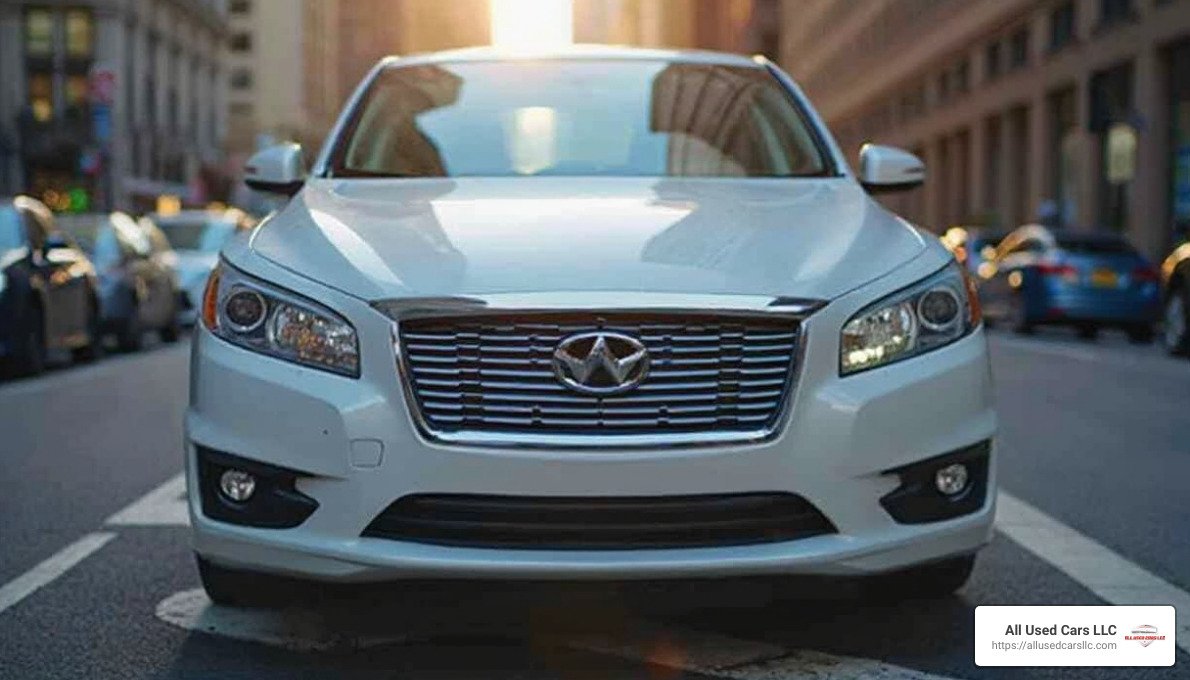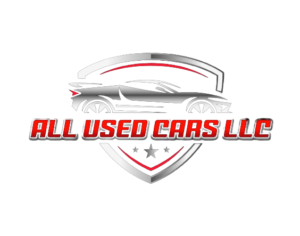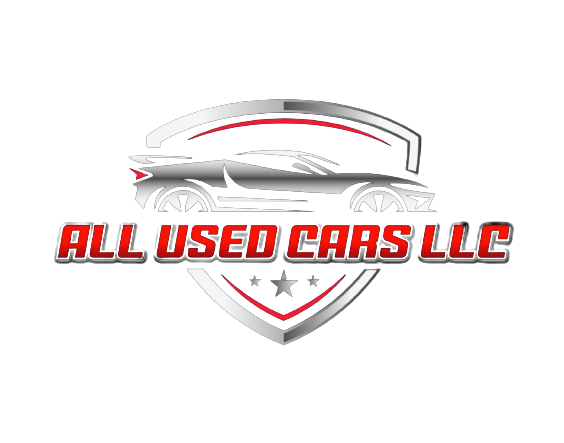
How to Buy a Used Car in New York: 5 Best Tips 2024
How to buy a used car in New York is a straightforward process if you know the right steps. Here’s a quick guide to get you started:
- Set your budget: Include all costs like insurance, taxes, and maintenance.
- Research and compare options: Check online listings and visit dealerships.
- Get preapproved for financing: Know your interest rates before hitting the dealerships.
- Inspect and test drive: Thoroughly check the car’s condition and review its history.
- Negotiate and finalize the deal: Ensure clarity on all contract terms before signing.
Purchasing a used car in busy New York might seem like a daunting task. However, if you break it down into manageable steps, it can be both exciting and rewarding. Setting a clear budget and understanding your financing options are pivotal in ensuring you don’t overspend. It’s also critical to find a reliable source, be it a registered dealership or a private seller, who offers transparent pricing and a wide selection.
New Yorkers value their time and money, so it’s important to be equipped with the right information about dealerships, DMV regulations, and paperwork essentials. From vehicle inspections to negotiating the price, each step of the process holds the key to a successful purchase.
Whether you’re aiming for a stylish sedan or a rugged SUV, following this guide can help streamline your journey to owning a used vehicle in New York.
Key how to buy a used car in new york vocabulary:
Understanding Your Needs and Budget
Before diving into used car shopping in New York, it’s crucial to understand your needs and budget. This step lays the foundation for a successful purchase and ensures you make a decision that fits your lifestyle and financial situation.
Budgeting
Start by setting a clear budget. Don’t just consider the car’s sticker price; think about the total cost of ownership. This includes:
- Insurance: Rates can vary based on the car model, your driving history, and even your location in New York. It’s wise to get insurance quotes for the models you’re interested in.
- Taxes and Fees: Purchasing a car in New York comes with sales tax and registration fees. These can add up, so factor them into your budget.
- Maintenance and Repairs: Used cars can have wear and tear. Set aside funds for regular maintenance and unexpected repairs.
A simple rule of thumb is the 20/4/10 rule: Put down at least 20%, finance for no more than 4 years, and keep total transportation costs (including insurance and gas) under 10% of your monthly income.
Financing
Once you’ve set a budget, explore your financing options. Getting preapproved for a loan can be a game-changer. It not only helps you understand what you can afford, but also gives you leverage when negotiating with dealers.
- Banks and Credit Unions: They often offer competitive rates compared to dealership financing. Plus, having a preapproved loan means you can focus on negotiating the car price, not the financing terms.
- Loan Terms: Be cautious of long loan terms. While they lower monthly payments, they increase the total interest paid over time. Aim for the shortest term you can comfortably afford.
Insurance
Insurance is a mandatory cost, and it’s important to get it right. Here are some tips:
- Compare Quotes: Use online tools to compare insurance quotes for different vehicles. This can save you money and help you choose a car that’s cheaper to insure.
- Coverage Options: Consider additional coverage like collision and comprehensive insurance, especially if the car is newer or more valuable.
- Discounts: Look for discounts based on your driving habits, safety features of the car, or bundling with other insurance policies.
By understanding your needs and carefully planning your budget, financing, and insurance, you’ll be well-prepared to steer the used car market in New York. This preparation not only saves money but also ensures peace of mind as you move forward in the car-buying process.
Next, we’ll dig into how to buy a used car in New York, focusing on dealerships, private sellers, and DMV regulations.
How to Buy a Used Car in New York
Finding the Right Vehicle
When you’re on the hunt for a used car in New York, find a vehicle that fits your needs and budget. Here’s how to make the process smoother:
Dealerships vs. Private Sellers
- Dealerships: Offer a wide selection and often provide warranties. They must be licensed by the DCWP, which adds a layer of protection. Check their license and complaint history here.
- Private Sellers: Might offer lower prices but come with fewer protections. Be cautious, as private sales lack the regulatory oversight of dealerships.
Vehicle History and Inspection
Before making a purchase, know the car’s past:
- Vehicle History Report: Use services like CARFAX to check for accidents, previous ownership, and more. This is crucial to avoid hidden issues.
- Inspection: Always inspect the car thoroughly or hire a mechanic. Look for signs of damage, check the odometer, and ensure everything functions properly.
Test Drive
A test drive is non-negotiable. It helps you assess:
- Handling: How does the car feel on the road?
- Comfort: Are the seats comfortable? Is there enough space?
- Features: Do all the controls work as expected?
Negotiating the Purchase
Once you’ve found the right car, it’s time to negotiate:
Price Negotiation
- Research: Know the market value using tools like Kelley Blue Book. This gives you a solid ground for negotiation.
- Be Firm: Focus on the total price, not monthly payments. Dealers may try to sway you with low monthly rates that add up to a higher total cost.
Contract Review
Before signing, scrutinize the contract:
- Never Sign Blank or Unclear Contracts: Fill in all blanks and cross out empty spaces.
- Check for Add-Ons: Dealers may add unnecessary extras. Ensure the contract reflects what you agreed upon.
- Interest Rates: Ask if the rate includes a dealer markup. Negotiate the best terms possible.
In New York, contracts must comply with specific regulations, especially if negotiated in Spanish or involving financing. Always ensure the terms are clear and understood.
Armed with this knowledge, you can confidently steer the process of buying a used car in New York. Up next, we’ll explore the legal and paperwork requirements you need to know.
Legal and Paperwork Requirements
Registering Your Vehicle
Once you’ve negotiated your purchase, it’s time to dive into the legal and paperwork requirements for buying a used car in New York. This process ensures that the vehicle is legally yours and that you comply with all state regulations.
Title Transfer
The title transfer is a crucial step in becoming the official owner of your new vehicle. The seller must complete and sign the transfer section on the back of the title certificate. If the title is unavailable, other proofs of ownership approved by the DMV can be used.
For a smooth title transfer, both parties should be present at the DMV. However, if this isn’t possible, ensure all documents are correctly signed before you visit the DMV.
Bill of Sale
A bill of sale is essential for documenting the transaction. In New York, this document must include:
- Year and Make: The car’s manufacturing details.
- VIN: Vehicle Identification Number.
- Date of Sale: When the transaction occurred.
- Purchase Price: Amount paid for the vehicle.
- Signatures: Both buyer and seller must sign.
This document serves as proof of sale and is required when registering your vehicle.
Sales Tax
In New York, you must pay sales tax on your vehicle purchase unless you qualify for an exemption. The tax rate varies by county, so check the local rate where you plan to register the car. If the car is a gift, ensure the bill of sale reflects a $0 purchase price and complete a Statement of Transaction (Sales Tax Form) (DTF-802).
Registration
Registering your vehicle with the DMV is mandatory to legally drive on New York roads. To register, you’ll need:
- Proof of Ownership: The title or other acceptable documents.
- Bill of Sale: As proof of the transaction.
- Proof of Insurance: A valid insurance card for the vehicle.
You’ll also pay a registration fee, which varies depending on the vehicle’s weight and your county of residence.
Proof of Ownership
Proof of ownership is typically the title, but if unavailable, the DMV accepts other documents. Always ensure you have valid proof to avoid complications during registration.
Navigating the legal and paperwork requirements can seem daunting, but understanding each step ensures a smooth transition to vehicle ownership. Next, we’ll discuss how to protect yourself from common pitfalls when buying a used car.
Protecting Yourself from Common Pitfalls
When you’re learning how to buy a used car in New York, knowing how to avoid common pitfalls is crucial. These pitfalls can lead to unexpected costs or even legal issues. Let’s explore some key areas to watch out for: flood-damaged cars, recalls, and warranties.
Flood-Damaged Cars
Flood-damaged cars can be a hidden nightmare for buyers. These vehicles may look fine on the outside but can have severe internal issues. Here’s how to spot them:
- Smell Test: Trust your nose. A musty or moldy smell might indicate water damage. Be wary of strong air fresheners, which could be masking a problem.
- Interior Check: Look for discoloration or stains on the carpet and upholstery. Brand-new upholstery in a used car could be a red flag.
- Exterior Signs: Check for fogging inside headlamps or taillights and dampness inside the wheel well. A water line in the engine compartment or trunk is a big warning sign.
- Under the Car: Inspect for rust and flaking metal. These are signs that the car might have been submerged in water.
Hiring a mechanic for a full inspection and getting a vehicle history report from the Department of Justice’s National Motor Vehicle Title Information System can save you from buying a flood-damaged car.
Recalls
Recalls are another crucial aspect to consider. A car might have unrepaired safety defects, which can be dangerous. Here’s what to do:
- VIN Check: Ask the dealer for the vehicle identification number (VIN) and check it on nhtsa.gov/recalls to see if the car needs any recall repairs.
- Dealer Policy: Before buying, inquire about the dealership’s policy on selling recalled cars. Even if they say they don’t sell such cars, verify it yourself.
- Manufacturer Notification: If you buy a used car, notify the manufacturer that you’re the new owner. They’ll contact you if there are any future recalls.
- Immediate Repairs: If the car has a safety defect, have it repaired immediately. If the dealer refuses to fix a recalled defect, you can file a complaint with the DCWP.
Warranties
Warranties offer peace of mind when purchasing a used car, but it’s essential to understand what they cover:
- New York State Lemon Law: Used car dealers must provide written warranties on cars that cost more than $1,500 or have less than 100,000 miles. This warranty covers the engine, transmission, drive axle, brakes, radiator, steering, and alternator.
- Mileage and Warranty Duration:
- 0 – 36,000 miles: 90 days or 4,000 miles
- 36,001 – 79,999 miles: 60 days or 3,000 miles
- 80,000 – 100,000 miles: 30 days or 1,000 miles
- Mileage and Warranty Duration:
- Coverage Limitations: Be aware that motorcycles, motor homes, off-road vehicles, and cars bought from individuals are not covered under this law.
By being vigilant about these common pitfalls, you can make a more informed decision and avoid potential issues down the road. Next, we’ll address some frequently asked questions about buying a used car in New York.
Frequently Asked Questions about Buying a Used Car in New York
How to Avoid Paying Sales Tax
In New York, there are specific circumstances where you might be eligible for a sales tax exemption when buying a used car. To qualify, you’ll need to complete the DTF-803 form, which is the “Claim for Sales and Use Tax Exemption.” This form is primarily used when the vehicle is a gift, inherited, or if you are transferring ownership between family members such as a spouse or parent.
- Gifted Vehicles: When a vehicle is given as a gift and the purchase price is $0, you can use the DTF-803 form to claim exemption. Remember to indicate on the form that the vehicle is a gift.
- Family Transfers: If the vehicle is transferred between close relatives, such as a parent to a child, you can also use the DTF-803 form for exemption.
- Documentation: Always ensure you have the necessary documentation to support your claim, like a bill of sale or a statement of transaction.
Do Both Parties Need to Be Present to Transfer a Title?
Transferring a vehicle title in New York does not necessarily require both the buyer and seller to be present at the DMV. However, there are some important steps to follow:
- Seller’s Responsibility: The seller must complete and sign the transfer ownership section on the back of the title certificate. They should also provide a signed Vehicle Bill of Sale (MV-912) to the buyer.
- Buyer’s Responsibility: The buyer must ensure they receive the title certificate and the bill of sale. They will need to bring these documents to the DMV to complete the title transfer.
- DMV Visit: The buyer must visit a DMV office to register the car and pay any applicable fees. It’s crucial to have all required documents, including proof of identity and residency.
What is Required to Buy a Car in New York?
When purchasing a used car in New York, several key documents and steps are necessary to complete the process:
- Registration: After buying the car, you must register it at a DMV office. You’ll need proof of ownership, such as the title certificate, and the bill of sale.
- Proof of ID: Bring valid identification, such as a driver’s license or state ID, to verify your identity.
- Sales Tax: Be prepared to pay sales tax unless you’re eligible for an exemption. The DMV will calculate the tax based on the purchase price.
- Insurance: Before you can drive the car, you must have it insured. Provide proof of insurance when registering the vehicle.
By understanding these requirements, you can streamline the process and avoid any unnecessary delays. Now that you’re equipped with this information, you’re ready to move on to the next steps in your car-buying journey.
Conclusion
Buying a used car in New York can be a rewarding experience, especially when you choose the right partner. At All Used Cars LLC, we pride ourselves on offering an extensive dealer network that spans across the USA, including key locations in New York. This means you have access to a wide range of top-quality vehicles, ensuring you find the perfect fit for your needs and budget.
Our commitment to providing competitive prices sets us apart in the automotive industry. We understand that purchasing a car is a significant investment, and we’re here to make sure you get the best value for your money. With our secure financing options, you can drive away with confidence, knowing you’ve made a smart financial decision.
Navigating the used car market can be challenging, but with All Used Cars LLC by your side, you can enjoy a smooth and stress-free buying process. Our knowledgeable team is ready to assist you every step of the way, from selecting the right vehicle to handling all the necessary paperwork.
Ready to find your next car? Explore our selection of used cars for sale and experience the difference with All Used Cars LLC. Let us help you drive home in a vehicle that meets your needs and exceeds your expectations.



